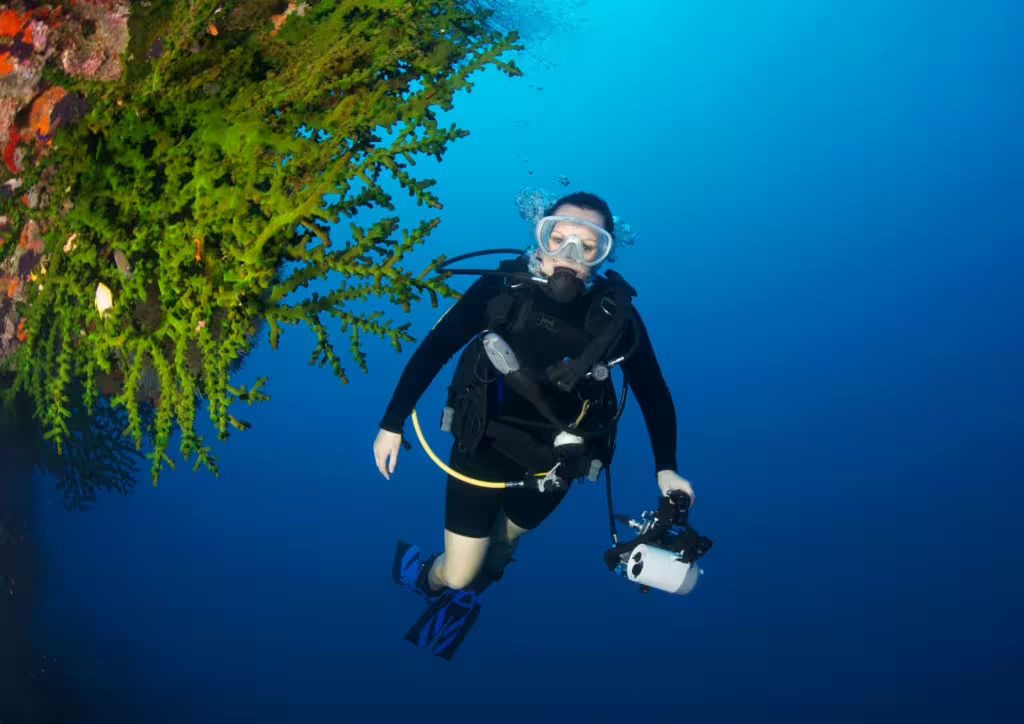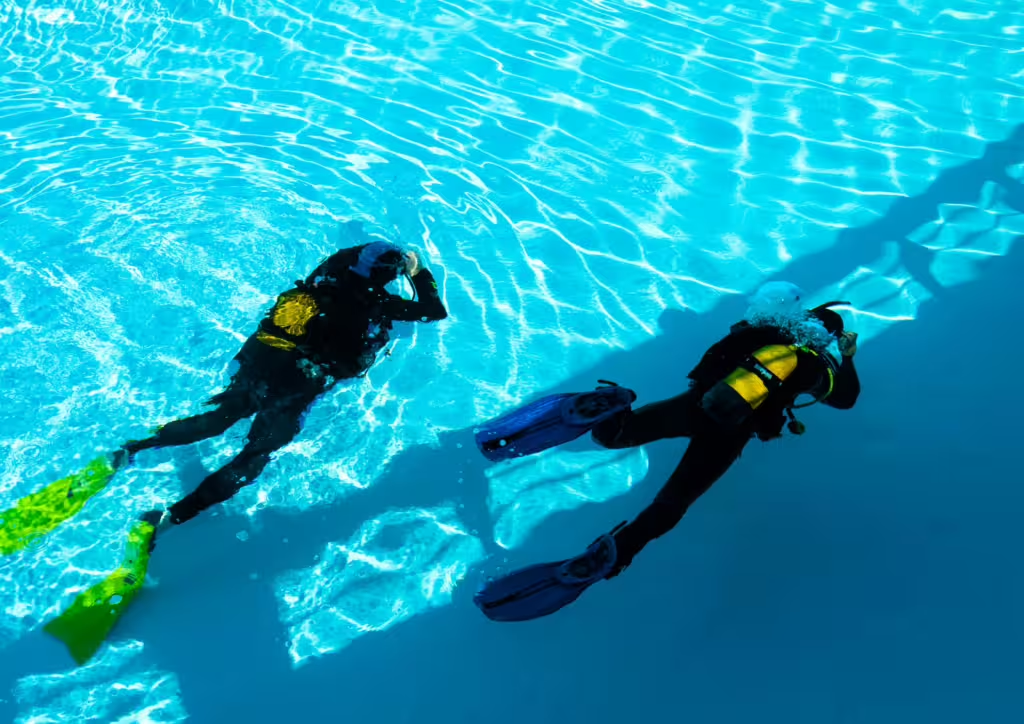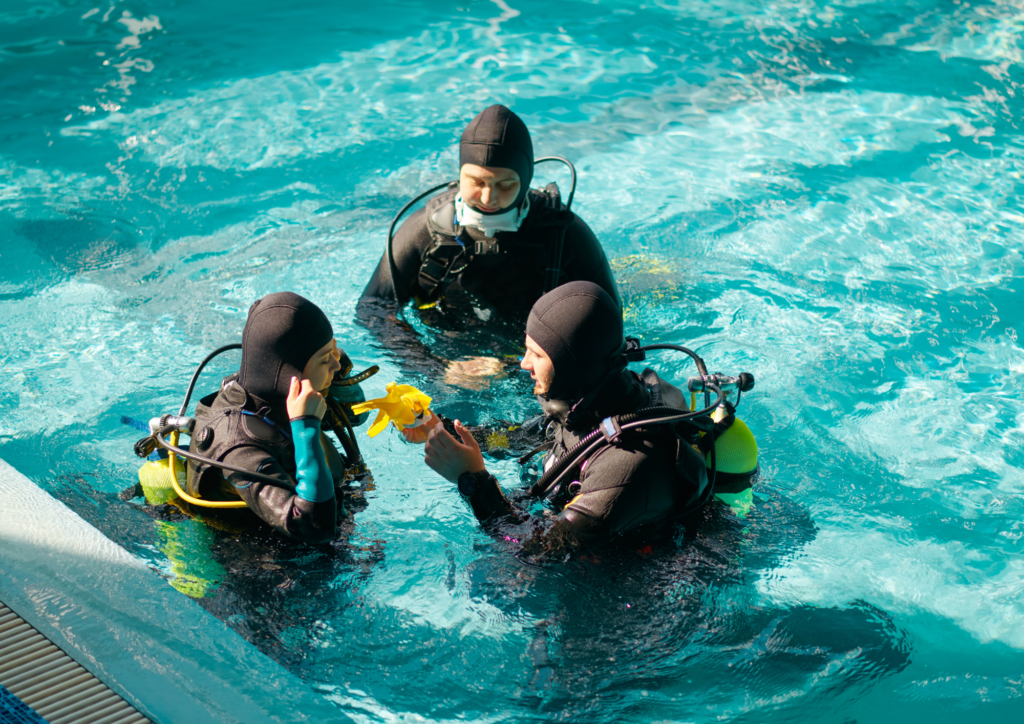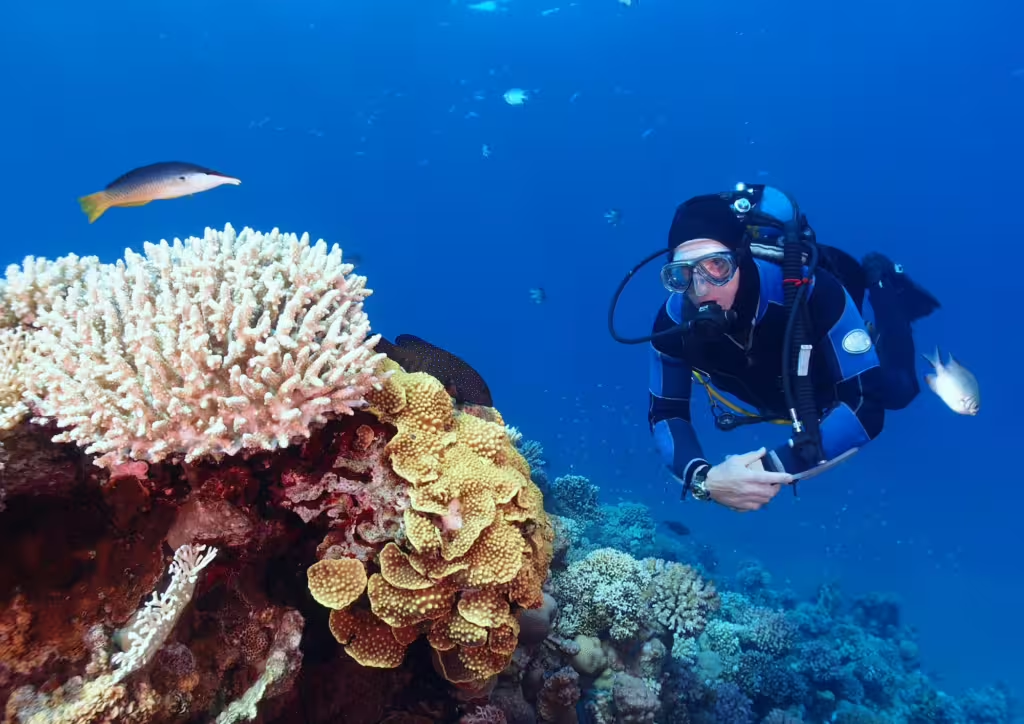Bali Open Water Diving Course is the perfect gateway to explore the island’s rich underwater world. Known as the Island of the Gods, Bali offers vibrant coral reefs, colorful marine life, and unforgettable dive sites that attract divers from all over the world. By joining a Bali Open Water Diving Course, beginners can gain the essential skills and confidence to dive safely while discovering stunning underwater landscapes.
From Tulamben’s famous shipwrecks to the crystal-clear waters of Nusa Penida, each location offers unique marine encounters. Taking a Bali Open Water Diving Course not only prepares you for safe and enjoyable dives but also allows you to fully experience the magic of Bali’s aquatic paradise. Whether it’s swimming alongside clownfish or exploring coral gardens, a Bali Open Water Diving Course promises an adventure you’ll never forget.
Understanding Open Water Diving Courses
A Bali Open Water Diving Course is a foundational program designed to equip divers with essential skills and knowledge for underwater exploration. Recognized as the gateway to the diving world, a Bali Open Water Diving Course combines both theory and practical training to help you master diving equipment, safety procedures, and underwater communication techniques. Typically completed in three to four days, a Bali Open Water Diving Course culminates in a certification that allows you to explore dive sites independently or with a buddy.
With prerequisites such as being at least 10 years old, having basic swimming skills, and passing a medical check, the course ensures you are well-prepared for a safe and exciting journey beneath the waves. By joining a Bali Open Water Diving Course, you’ll gain confidence in skills like buoyancy control and navigation while exploring Bali’s famous reefs, shipwrecks, and vibrant marine ecosystems. This unique blend of education and real-world experience guarantees that by the end of your training, you’ll not only feel confident as a diver but also inspired to continue discovering the beauty of Bali’s underwater paradise.
Essential Skills You Will Master

Embarking on a Bali Open Water Diving Course not only lets you explore vibrant marine life but also equips you with essential diving skills for safety and enjoyment underwater. A Bali Open Water Diving Course begins with equipment handling, where you’ll learn about regulators, buoyancy compensators, wetsuits, and the proper techniques to use and care for them. This knowledge ensures you can dive comfortably and confidently throughout your underwater journey.
Another key focus of a Bali Open Water Diving Course is buoyancy control, which helps you maintain stability and move gracefully through the water without disturbing marine ecosystems. You will also develop underwater navigation skills, an important component of any Bali Open Water Diving Course, ensuring that you can safely explore dive sites and return to your starting point with ease. By mastering these skills, a Bali Open Water Diving Course not only enhances your diving experience but also deepens your connection to Bali’s breathtaking underwater world.
Safety Procedures: Dive Smart
Safety is the cornerstone of any successful diving experience, especially in a vibrant underwater paradise like Bali. In your Open Water Diving Course, you will learn crucial emergency protocols that are designed to prepare you for various underwater scenarios. This includes how to handle potential equipment failures, loss of buoyancy, and other unexpected situations that might arise while diving. Additionally, the buddy system, a fundamental safety practice in diving, will be emphasized.
This system ensures that you and your dive partner are always checking on each other, allowing for a safer and more enjoyable dive trip. It’s not just about individual safety, but about fostering a community of divers who look out for one another. Understanding the common underwater challenges is also essential for a successful dive. The course will equip you with the skills to manage potential hazards, such as strong currents or low visibility conditions.
You’ll be taught how to navigate these challenges while maintaining your composure and confidence underwater. By internalizing these safety procedures, you’ll not only enhance your personal diving skills but also contribute to a safer diving environment for everyone in Bali’s incredible marine ecosystems.
Underwater Techniques for Every Diver

Underwater techniques are an essential part of the learning curve for every diver, especially those embarking on a Bali Open Water Diving Course. One of the primary skills taught is equalizing pressure, a vital technique for maintaining comfort and safety while descending and ascending in the water. Divers must learn to equalize the pressure in their ears and sinuses to avoid discomfort and potential injury from rapid changes in depth. I
n addition to equalizing, aspiring divers will be instructed in various swimming techniques that enhance maneuverability and efficiency underwater, allowing for a more enjoyable experience while exploring Bali’s breathtaking marine life. Effective communication signals also play a crucial role in the underwater environment.
During the course, students are taught a set of standard hand signals that help convey important information between divers, ensuring safety and teamwork while diving. Mastering these techniques not only builds confidence but also fosters a sense of camaraderie among divers as they navigate the stunning dive spots together. By focusing on these essential underwater skills, a Bali Open Water Diving Course prepares students to enjoy smoother dives while fully immersing themselves in the rich underwater world of Bali.
Bali’s Top Dive Spots for Practicing Skills
Bali is renowned for its stunning dive sites, each offering unique environments that are perfect for practicing the skills learned in an Open Water Diving Course. Among the top spots is the famous Tulamben, home to the USAT Liberty Shipwreck. This site provides an extraordinary opportunity for divers to explore a sunken vessel, teeming with marine life, while honing essential skills such as buoyancy control and navigation.
With depths ranging from 5 to 30 meters, the wreck allows divers to experience different underwater conditions, ensuring a comprehensive learning experience. Another fantastic location is the coral gardens of Amed, where you can practice your skills amidst vibrant reefs and a plethora of marine creatures, perfect for enhancing your confidence and comfort in the water.
The magnificent Nusa Penida, known for its rich biodiversity, is yet another gem for new divers. Here, participants can engage in drills among manta rays and vibrant coral reefs. The varying currents and depths found in these dive spots provide divers with the challenges needed to develop critical skills and safety techniques, all while enjoying the natural beauty of Bali’s underwater landscape. Each dive site you encounter during your course will deepen your understanding of diving fundamentals and prepare you for future underwater adventures.
What to Bring for Your Diving Adventure

Preparing for your diving adventure in Bali requires careful consideration of what to bring along to ensure both safety and enjoyment during your Open Water Diving Course. Start with personal gear such as a well-fitting wetsuit, mask, snorkel, and fins. While many diving schools provide equipment, having your own can enhance comfort and familiarity. Additionally, a reliable dive computer or underwater watch will help in tracking your dives, while a surface-signal device is essential for safety during ascents.
Don’t forget to pack your certification card, as it is often required to participate in the course, along with your personal medication and any extra gear that you find comfortable and suitable for underwater activities. Being well-equipped allows you to focus more on the essentials of diving rather than worrying about forgettable details. In addition to dive-specific gear, there are practical items that will contribute to a smooth diving experience.
Sunscreen is a must to protect your skin from the powerful tropical sun, while an eco-friendly reef-safe option is preferred. Lightweight, quick-dry towels and snacks for energy are also beneficial, along with ample water for hydration. Finally, having a waterproof bag to store your belongings while on the boat can save you from water damage. With this checklist in hand, you’re now ready to embark on an unforgettable journey exploring Bali’s best dive spots through your Open Water Diving Course.
Start Your Diving Journey in Bali Today!
In conclusion, exploring Bali’s diverse underwater world through an open water diving course not only equips you with essential skills but also introduces you to breathtaking marine life and vibrant coral reefs. From the serene waters of Tulamben to the stunning sites around Nusa Penida, each diving location provides a unique experience that is sure to thrill both beginners and seasoned divers alike. By enrolling in an open water diving course, you can immerse yourself in the beauty of the ocean while gaining confidence and knowledge that will serve you for years to come.
Furthermore, diving in Bali offers the perfect blend of adventure, education, and appreciation for marine conservation. Engaging in this course will not only enhance your diving techniques but also foster a deeper connection with nature. As you dive into the crystal-clear waters, you’ll leave with unforgettable memories and a desire to explore more of what our oceans have to offer. So, gear up and get ready for an incredible diving journey in one of the world’s most enchanting destinations!

